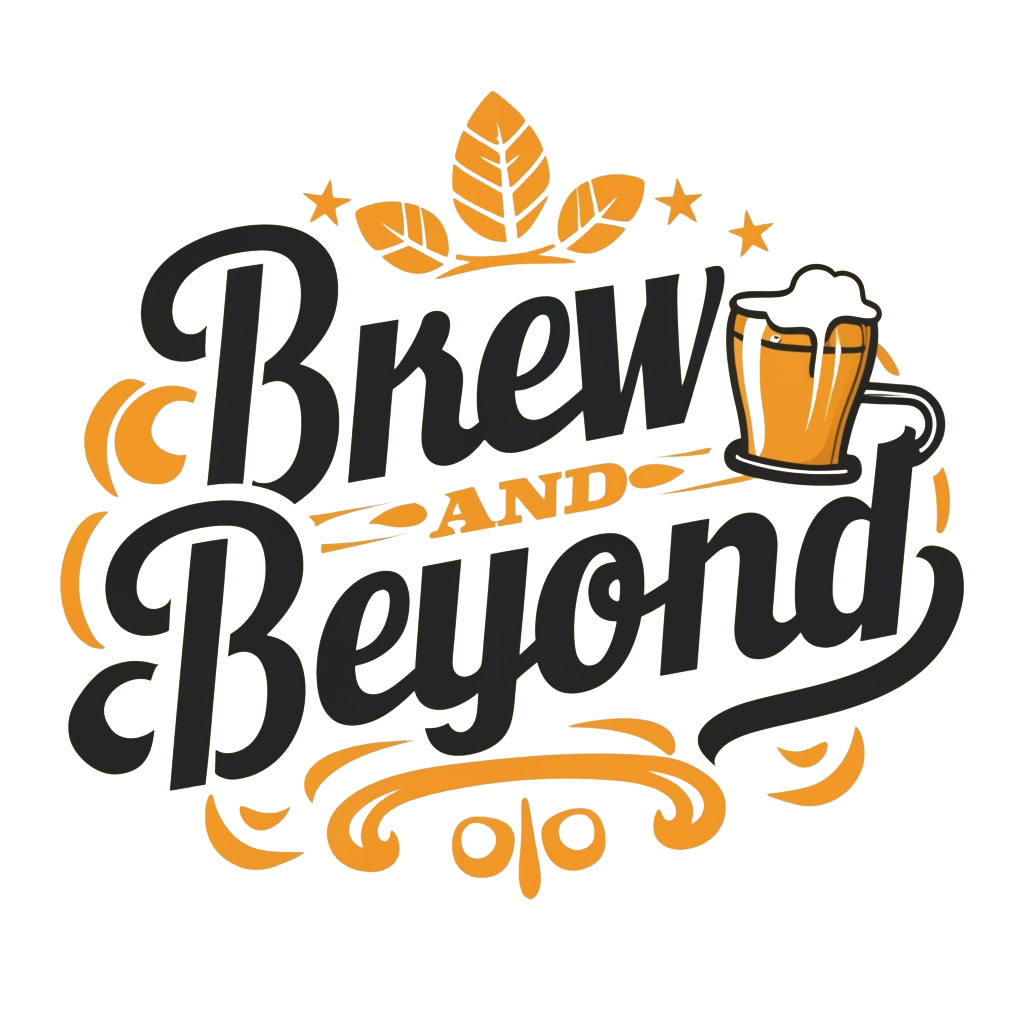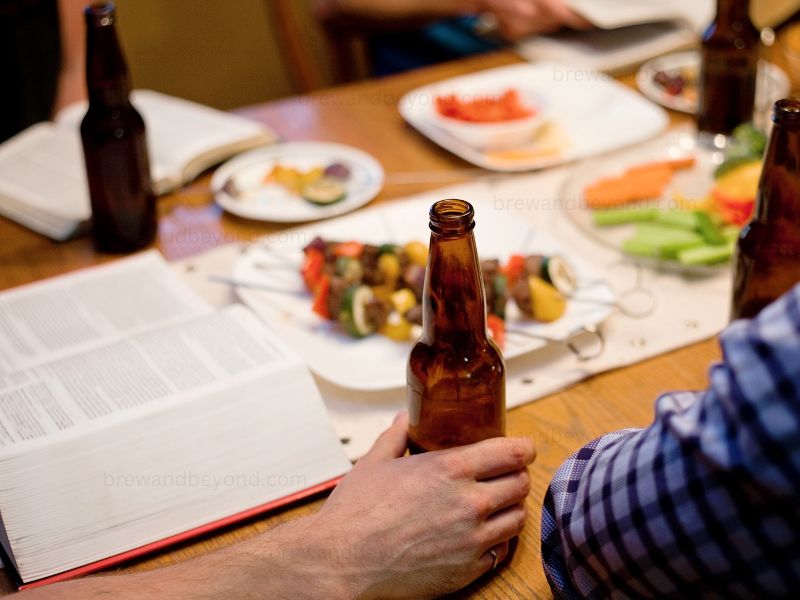Beer in the Bible – An Intriguing Connection
“Beer in the Bible” isn’t a phrase that one stumbles upon every day. It’s a fascinating fusion, a testament to the deeply ingrained role that beer has played throughout human history.
The Birth of Beer and Its Biblical Impressions
First, let’s roll back time to the cradle of civilization, where the earliest traces of beer were discovered. Ancient Sumer, now Southern Iraq, is home to the world’s oldest known recipe for beer. This beverage was an integral part of society, and it was revered as a gift from the gods.
And here’s where the biblical connection comes in. In the Bible, there’s no specific word for ‘beer.’ However, that doesn’t mean it was absent. Numerous verses refer to ‘strong drink’ or ‘fermented beverages,’ and historians believe this could include beer. The keyword “Beer in the Bible” takes on a new meaning when we understand the cultural context of these biblical times.
The Biblical Interpretations
The Bible mentions these fermented beverages frequently, often paired with wine. An instance is found in Isaiah 5:11, “Woe unto them that rise up early in the morning, that they may follow strong drink; that continue until night, till wine inflame them!” From this, we deduce that alcoholic beverages were commonplace in society, though excessive consumption was cautioned against.
Beer in the Bible – The Symbolism
Beer in the Bible had more than just a literal role. It held symbolic significance, often representing prosperity and abundance. In Proverbs 3:10, we find, “So shall thy barns be filled with plenty, and thy presses shall burst out with new wine.” This verse suggests that abundant wine and possibly beer, as part of fermented drinks, are signs of divine blessing.
Beer and Ritualistic Observances
The consumption of beer and other fermented beverages wasn’t just about indulgence or merriment. These drinks held a sacred role, contributing to religious rituals. Numbers 28:7 describes the libation, a drink offering, which may have included beer: “And the drink offering thereof shall be the fourth part of a hin for the one lamb: in the holy place shalt thou cause the strong wine to be poured unto the LORD for a drink offering.”
This highlights the depth of the relationship between “Beer in the Bible,” illustrating how beer might have played an integral part in their religious and social fabric.
A Testament of Time
Beer, as we’ve learned, has a far-reaching history that extends to biblical times. By examining “Beer in the Bible,” we unearth the rich and complex relationship between humanity and this time-honored beverage. As you sip your next brew, you’re not just enjoying a cold drink; you’re partaking in an age-old tradition that even biblical figures might have shared.
The Complex Role of Beer in the Bible
As we delve deeper into the connection between “Beer in the Bible,” we unearth a more complex relationship. For instance, while beer and other fermented drinks were integral to social and religious customs, they were also associated with transgression and misfortune when consumed in excess. Proverbs 20:1 warns, “Wine is a mocker, strong drink is raging: and whosoever is deceived thereby is not wise.”
Beer in the Bible: A Linguistic Perspective
Another fascinating dimension to explore is the linguistic aspect. When you dig into the original texts of the Bible, the Hebrew word ‘shekhar’ frequently appears. This word is generally translated as ‘strong drink.’ And while it doesn’t directly translate to ‘beer,’ some scholars argue that it could encompass beverages like beer, given the historical and cultural context.
Stories Told Through the Ages
A significant piece of the “Beer in the Bible” narrative is the stories that have echoed through time. The Bible brims with tales that reference the use and misuse of alcoholic beverages. One such tale is that of Noah, who, after surviving the flood, plants a vineyard, makes wine, and becomes drunk (Genesis 9:20-21).
Similarly, the story of Lot and his daughters (Genesis 19:30-38) involves the use of wine to stupefy Lot. These stories underscore the duality of “Beer in the Bible,” symbolizing both a divine blessing and human downfall.
The Beer-Bread Connection
Last but not least, when discussing “Beer in the Bible,” one can’t ignore the close relationship between beer and bread. Both were staple foods in ancient societies, and both are born from grains and fermentation. The miracle of the five loaves and two fish that Jesus performed to feed the multitude (Matthew 14:13-21) demonstrates the significance of bread. If beer was part of their diet, as historians suggest, then it too holds its importance in biblical narratives.
Exploring “Beer in the Bible” invites us to look beyond the frothy surface and delve into a deep and layered narrative that intertwines religious, social, and historical aspects of human life.
The Beer in the Bible and the Ancient Art of Brewing
Now, let’s touch on the fascinating art of brewing beer during biblical times. Though we can’t say with certainty, the brewing process was likely not too dissimilar from our contemporary practices. Grains, probably barley, would have been soaked in water until they sprouted, then dried and crushed to create malt. The malt would then be steeped in hot water to produce a sugary liquid to which yeast was added, initiating fermentation.
In the absence of hops, ancient beer might have had a different flavor profile compared to what we enjoy today. But the fundamental connection remains — a testament to the enduring tradition and importance of beer through the ages.
Fermented Wisdom in Proverbs
Another interesting facet of the “Beer in the Bible” discourse lies in the wisdom literature of the Old Testament. Here, in the book of Proverbs, beer, or ‘strong drink,’ is referenced several times, both as a cautionary warning against overindulgence and as a comfort for those in distress. Proverbs 31:6-7 notes, “Give beer to those who are perishing, wine to those in anguish; let them drink and forget their poverty and remember their misery no more.”
This dual perspective reflects the complexity and nuance that the topic of “Beer in the Bible” holds, a testament to the multi-faceted roles that beer has played throughout human history.
From Past to Present
So, what does “Beer in the Bible” tell us about our relationship with this popular beverage today? It reveals that our love for beer is far from a modern phenomenon. Instead, it’s a thread woven into the fabric of human history, from ancient civilizations to biblical societies and our contemporary world.
Brewing and consuming beer was not just a matter of survival or a method to safely consume water. It was about community, celebration, solace, and spirituality. As we raise our glasses today, we are partaking in a tradition that dates back millennia, a ritual that was likely shared by those who walked the earth during biblical times.
The Beer in the Bible: A Testament to an Age-Old Tradition
In conclusion, the exploration of “Beer in the Bible” offers a fascinating glimpse into the ancient world, revealing beer’s long-standing place in human society. Whether being used in ritual libations, symbolizing abundance, or serving as a cautionary emblem against excess, beer is intimately entwined with our collective past.
This inquiry uncovers not just the historical presence of beer, but its social and symbolic significance. It paints a rich tapestry of human culture, highlighting our enduring relationship with this cherished beverage. The beer we enjoy today is not merely a drink; it’s a testament to an age-old tradition, a shared history that harks back to biblical times. So, the next time you sip your beer, remember that you’re participating in a ritual as old as civilization itself.
© 2023 by brewandbeyond.com. All rights reserved. No part of this document may be reproduced or transmitted in any form or by any means, electronic, mechanical, photocopying, recording, or otherwise, without prior written permission of brewandbeyond.com.



